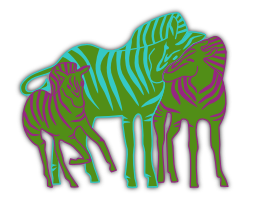Indigenous People & First Nations Peopleize
Uniting for a future built on equality, respect, tradition, and self-sufficiency, supporting First Nations and Indigenous People communities worldwide.
SunRun: 690002026
The World built by Indigenous People & First Nations
Indigenous Peoples & First Nations are re-imagining a world rooted in principles of justice, balance, and reciprocity. Unlike the current colonial government systems that prioritize exploitation and control, Indigenous societies have long upheld governance structures based on consensus, respect for natural law, and collective well-being. This movement rejects oppressive hierarchies and embraces a sustainable, equitable future built on equality. Guided by Indigenous wisdom, we are paving the way for a world that unites all people in resistance against centuries of colonial laws, religion, government, and ways of thinking.
There are over 476 million Indigenous people living across the world, accounting for 6.2 percent of the global population. They live in more than 5,000 distinct community groups across the globe. Indigenous people speak overwhelmingly more than 6,900 languages.
Indigenous-Led Businesses and Global Collaboration
We are building a network that uplifts Indigenous-owned businesses by providing resources, financial support, and partnership opportunities. Our initiative establishes systems for trading and collaboration among Indigenous Peoples & First Nations worldwide, fostering a thriving global community rooted in self-determination and resilience.
Financial Sovereignty and Equalizing Global Trade
Together, we reclaim financial independence through community-driven investment and trade systems. By developing equitable trading networks and a currency equalizing payment system, we ensure that Indigenous Peoples & First Nations across the globe can trade and collaborate fairly, supporting sustainable economic empowerment for all.
Housing, Healthcare, and Self-Sustainability
Through unity and collaboration, we prioritize the well-being of our communities worldwide, advancing access to culturally relevant housing, healthcare, and social systems. By establishing global networks of support and resource-sharing, we work together to achieve self-reliance, honoring the principle of “people helping people” and creating a sustainable future.
Decolonizing Education and The World
We are reclaiming education in our own languages and creating pathways to uplift Indigenous knowledge systems on a global scale. By dismantling colonial structures, we establish a decolonized, interconnected network of Indigenous Peoples & First Nations who share wisdom, foster equality, and build a just world rooted in collective empowerment and respect for all cultures.
FAQs About Indigenous-Led Decolonization and Global Collaboration
Discover answers to common questions about Indigenous governance, the principles of decolonization, and how Indigenous-led initiatives drive positive economic, educational, and cultural change. This section aims to deepen understanding for non-Indigenous visitors and potential allies.
What does decolonization mean for Indigenous Peoples?
Decolonization involves reclaiming autonomy over lands, languages, education, and governance structures, moving away from systems imposed by colonial powers. It centers on restoring traditional ways of life, rights, and self-determination for Indigenous communities.
How does Indigenous governance differ from colonial government systems?
Indigenous governance is traditionally based on consensus, respect for natural laws, and collective well-being. Unlike hierarchical, often exploitative colonial systems, Indigenous governance models prioritize sustainability, equality, and interconnectedness with nature.
What role does economic sovereignty play in Indigenous-led initiatives?
Economic sovereignty enables Indigenous communities to control their own resources, trade systems, and financial frameworks, ensuring that wealth generated from Indigenous lands and businesses benefits Indigenous communities directly.
How can non-Indigenous people support decolonization efforts?
Non-Indigenous people can support by learning about Indigenous histories and cultures, amplifying Indigenous voices, advocating for policies that protect Indigenous rights, and supporting Indigenous-owned businesses and organizations.
Why is preserving Indigenous languages and knowledge systems important?
Indigenous languages and knowledge systems hold unique perspectives and wisdom about living sustainably and harmoniously with the Earth. Preserving them strengthens cultural identity and resilience while enriching global knowledge.
Peopleize Equalizing Currency System
The Peopleize Equalizing Currency System bridges the gap between Indigenous currencies and global colonial currencies, ensuring equal value for all parties in economic exchanges. This system eliminates the historic financial inequality, making Indigenous currencies on par with the colonial currencies of the country in which the Indigenous community is located.
In practical terms, the system adjusts the value of Indigenous currencies to match the colonial currency (such as USD, EUR, etc.) used in a transaction. This dynamic system ensures that:
- The value of the Indigenous currency is always equal to the local colonial currency during a transaction.
- The system eliminates devaluation of Indigenous currencies in favor of global financial systems.
- Buyers and sellers from both Indigenous and colonial economies can engage in trade at equal values, regardless of the currency used.
- Indigenous economic sovereignty is strengthened, as Indigenous communities maintain control over their financial systems and transactions.
Example of How It Works
Let’s take a scenario where an Indigenous community in Canada is selling handmade goods:
- Buyer in the US (USD): 1 Indigenous Equalizing Currency = 1 USD
- Buyer in Europe (EUR): 1 Indigenous Equalizing Currency = 1 EUR
- The system ensures the value of the Indigenous Equalizing Currency remains the same for both buyers, so the Indigenous community is paid equally, regardless of whether the buyer is in the US, Europe, Asia or Africa.
Key Benefits
- Economic Fairness: Ensures that Indigenous currencies hold equal value to colonial currencies in trade, allowing for fair exchange rates.
- Global Trade Equity: Indigenous communities can engage in the global market with their own currencies at equal value to Western currencies.
- Community Control: The system allows Indigenous communities to maintain control over their economic systems without reliance on colonial financial institutions.
